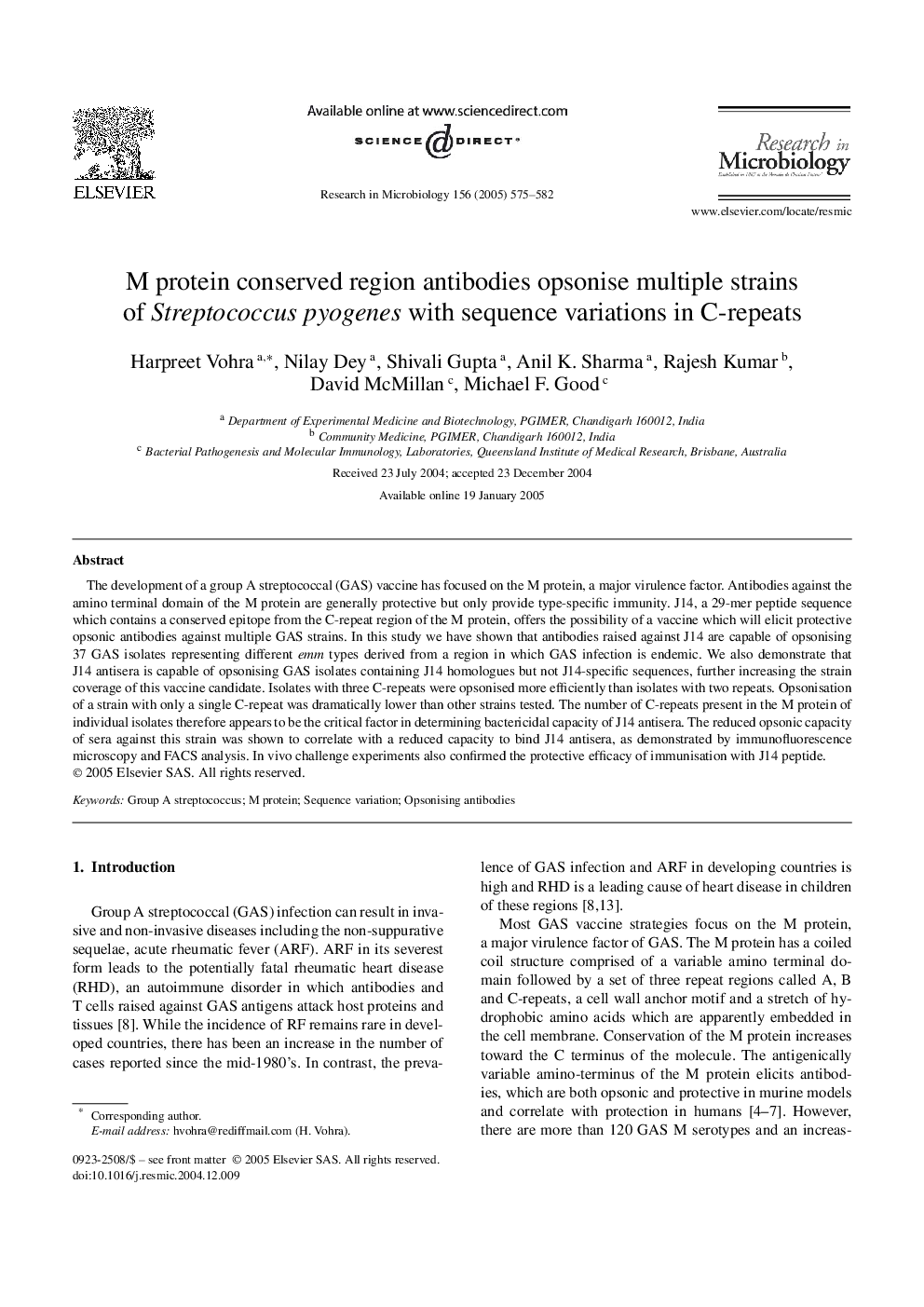| Article ID | Journal | Published Year | Pages | File Type |
|---|---|---|---|---|
| 9440154 | Research in Microbiology | 2005 | 8 Pages |
Abstract
The development of a group A streptococcal (GAS) vaccine has focused on the M protein, a major virulence factor. Antibodies against the amino terminal domain of the M protein are generally protective but only provide type-specific immunity. J14, a 29-mer peptide sequence which contains a conserved epitope from the C-repeat region of the M protein, offers the possibility of a vaccine which will elicit protective opsonic antibodies against multiple GAS strains. In this study we have shown that antibodies raised against J14 are capable of opsonising 37 GAS isolates representing different emm types derived from a region in which GAS infection is endemic. We also demonstrate that J14 antisera is capable of opsonising GAS isolates containing J14 homologues but not J14-specific sequences, further increasing the strain coverage of this vaccine candidate. Isolates with three C-repeats were opsonised more efficiently than isolates with two repeats. Opsonisation of a strain with only a single C-repeat was dramatically lower than other strains tested. The number of C-repeats present in the M protein of individual isolates therefore appears to be the critical factor in determining bactericidal capacity of J14 antisera. The reduced opsonic capacity of sera against this strain was shown to correlate with a reduced capacity to bind J14 antisera, as demonstrated by immunofluorescence microscopy and FACS analysis. In vivo challenge experiments also confirmed the protective efficacy of immunisation with J14 peptide.
Related Topics
Life Sciences
Immunology and Microbiology
Applied Microbiology and Biotechnology
Authors
Harpreet Vohra, Nilay Dey, Shivali Gupta, Anil K. Sharma, Rajesh Kumar, David McMillan, Michael F. Good,
